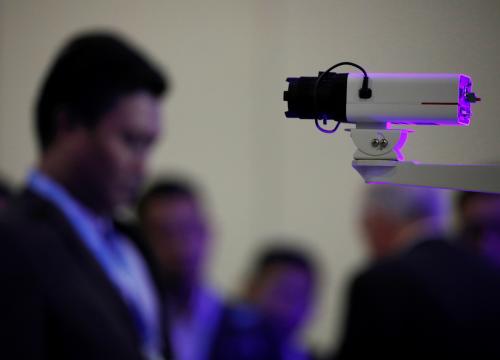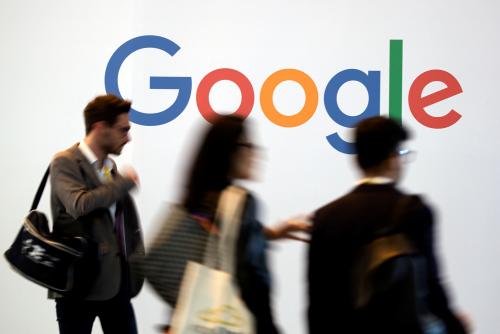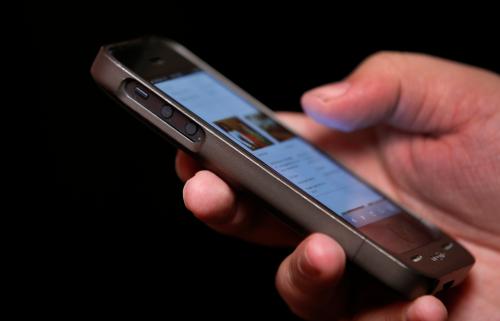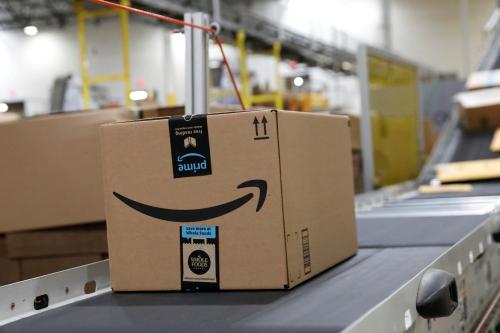While companies have been preparing for disruptions such as automation, robotics, and artificial intelligence, none could have predicted the ultimate black swan—the coronavirus outbreak, disrupting business models, air travel, and supply chains around the world.
No one knows what lasting effect the coronavirus will have on our economy, whether it will subside or keep spreading and force more companies to send employees home to telecommute and lead to a cancellation of all 2020 events. We’ve already seen Facebook, Google, Microsoft, and IBM cancel meetings plus major international conferences, such as Mobile World Congress, TED and SXSW cancel their annual events that were planned for March, April and May, creating a ripple effect for the travel and transportation industries.
This business disruption is testing everyone’s emotional and social operating system and functioning, which is better known as emotional intelligence. Sequoia Capital said it best in a blog post addressed to founders and CEOs: “In some ways, business mirrors biology. As Darwin surmised, those who survive ‘are not the strongest or the most intelligent, but the most adaptable to change.’ ”
It’s the responsibility of leaders to show empathy, unprecedented optimism, and flexibility that will lead business out of this crisis. It may all come down our ability to self-direct and problem-solve on a regular basis.
While this crisis might blow over, it probably won’t happen in the next few weeks, so we need a crash course in developing our emotional intelligence skills. Here’s a primer on how to create a level of respect and calm for yourself and others.
Be empathetic
Keep in mind that this event is impacting everyone, not just you and your business. Reminding yourself that you have no idea what other people are going through will center you and make you a more generous and calmer leader.
In my book, Elephants Before Unicorns: Emotionally Intelligent HR Strategies to Save Your Company, I talk about everyone being a people leader at home, in public and, of course, at work. Sensing that everyone is in a similar situation is the antidote to highly elevated levels of stress, pessimism, and rigidity that will only compound your frustration and ability to problem solve.
While it will be difficult to feel optimistic, start by realizing that everyone else is also calling the airline directly to change travel plans and that policies are evolving daily. Center yourself before demonstrating heightened emotions to call centers. Cumulative stress from callers will impact their problem-solving abilities, so be calm and helpful to allow people to manage your problems in the best possible way. This is a great way to consider how you are adopting a social responsibility mindset.
Be innovative
Technology has made it possible for us to work anywhere. With video conferencing, email, and online chat, we can continue to work even if we are forced to do that from home.
From conference call software such as Zoom, Bluejeans, and Google Hangouts, to re-arranging major sales and networking conferences via online conference platforms such as Hopit or Thinkific, we can continue business as usual. Creative teams that suddenly must work from home can use collaboration tools like Autodesk’s Shotgun, Slack, or Microsoft Teams. Skype, FaceTime, and Google Hangouts are tried-and-tested, no-cost video conferencing options for bridging the space between office and home. All the solutions are at our fingertips—we just have to embrace the change.
Be flexible
If your company has an event planned for June, consider taking a wait-and-see approach rather than canceling it now, or consider flipping the concept and content to a truly digital event by webcasting all the relevant speakers, panels, and networking events.
Develop and circulate policies now so that staff knows whether to come to work and when to stay home. Instead of inviting vendors or guests to your meeting, share the latest protocols with them via email and have them sign via Docusign to avoid the spread of the virus through fingers touching check-in reception devices, pens, and countertops at the registration desk.
One of my international travel clients recently asked participants and vendors to disclose where they and their family members had travelled during these past four weeks to determine whether to hold an onsite meeting or transition to a digital video conferencing visit. By taking this extra step, they are protecting everyone while demonstrating flexibility. This type of flexibility enables everyone to adopt a similar mindset so that they can continue to do their job without distraction.
Be optimistic
Governmental organizations, medical institutions, the media, and business leaders around the world are seeking solutions and communicating with the public to prevent panic and spread of disinformation. Consider this a time to be grateful that we can access all the information we need to make educated decisions.
Major changes to your conferences and the way you work will inevitably be disorienting. Show your empathy, optimism and gratitude for the work people have done. Be thankful for their understanding. This sense of optimism and gratitude will allow solutions and new ideas to come through. Remind yourself and the people you lead that you will work on this together. Center yourself, develop a gratitude mindset that people are doing the best they can in this time of uncertainty and when anxiety spikes, as it invariably will, remind yourself that empathy is key. We are all in this together and together we will find a way forward.
By taking responsibility of your mindset, to be optimistic and find solutions, you are helping yourself and others. This is a human and emotionally intelligent thing to do.
Google, Facebook, IBM, and Microsoft are general, unrestricted donors to the Brookings Institution. The findings, interpretations, and conclusions posted in this piece are solely those of the authors and not influenced by any donation.










Commentary
Workplace emotional intelligence during the global coronavirus outbreak
March 11, 2020